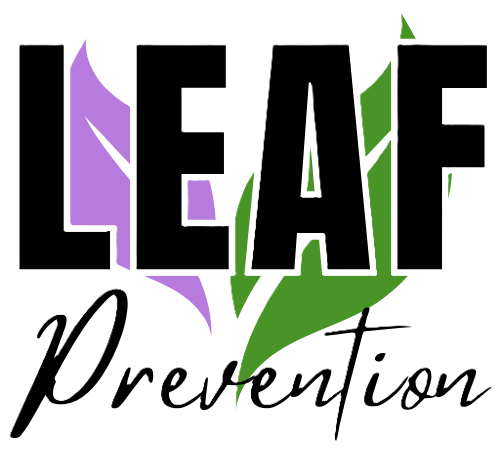

Blog Posts
“Weed.” “Pot.” “Marijuana.”
As a parent, you’re navigating a drug scene that is very different from the one you grew up with. Cannabis has recently been legalized for recreational use in New York State, and if you have a tween, teen, or young adult, their cannabis use comes with very real risks.
Let’s start the conversation about why teens shouldn’t use cannabis and what parents can do to support healthy choices.
Cannabis may have a reputation as “not such a bad drug,” but remember that teens’ brains are still developing until around age twenty-five—and any substance used during their early years can have lifelong effects on the brain.
Using cannabis can have the following effects (and these are just a few—a longer list can be found here):
Struggles with Mental Health: According to CDC, cannabis use “has been linked to a range of mental health problems, such as depression and social anxiety” (CDC, 2024). Individuals who already struggle with mood changes or suicidal thinking may find cannabis worsens these tendencies. Although it’s rarer, cannabis use has also been linked to psychosis and the onset of schizophrenia, especially for those who start using it at a younger age.
Impaired Brain Function: Cannabis use can cause issues with memory, reasoning, focus, and planning abilities. Teens are still developing some of these capacities and don’t need any additional obstacles heaped onto the already-challenging landscape of this stage of life.
School Outcomes: According to C.S. Mott Children’s Hospital, regular cannabis use is associated with increased absences, poorer school performance, and increased risk of dropping out of school (MottChildren.org, 2023).
Danger on the Road: Any substance increases the risk for impaired driving. Parents can educate their teens on the risks and realities of staying safe behind the wheel.
Risk of Heart and Lung Problems When Smoked: It’s a myth that cannabis is “better” than cigarettes for the lungs—it’s not. Any substance that is smoked increases the risk for heart and lung issues, including short-term effects on your teen’s athletic performance.
Dependency: Starting a cannabis habit early in life can make it more challenging to quit. By educating your child on the long-term risk of dependency or addiction, you can help them avoid this difficult circumstance down the road.
Talk Early and Often. Children at any stage can benefit from age-appropriate teaching about substance use and healthy choices. Make a point to bring up cannabis often—ask your child what they’ve heard or tried. Don’t assume they know better after only one conversation. For a more in-depth article on this topic, see “Having “the” Talk with Your Kids (and We're Not Talking About Sex).”
Set Clear Expectations. It’s best to strike a firm balance when it comes to substance use—while taking an authoritarian approach may prevent a teen from being open, parents will also want to be clear about what they will and won’t tolerate. Be sure that your teen understands what is expected of them.
Set a Good Example. Be aware of how your teen sees cannabis treated at home. Even if you as the parent aren’t actively using it in front of your teen, they will pick up on your attitudes and comments about it. Even media depictions of cannabis use can set the tone for your child.
Be Aware of the Potential Signs Your Teen is Using Cannabis. These can include bloodshot eyes, acting overly silly or reserved, changes in their friend group, issues at school, and more. For a more detailed list of signs, see this article from C.S. Mott Children’s Hospital.
Know When and How to Ask for Help. If your child has progressed from experimentation into full-blown cannabis dependence, it may be time to seek help. Your child’s pediatrician can be a good starting point, and they may be able to recommend mental health resources for support. After you’ve taken those steps, you can also contact LEAF at (607) 432-0090 for connections to local resources.
Guiding your child through decisions around substances can be difficult, but take heart: your support at this critical time can help set your child up for a healthier future.
AACAP. “Marijuana and Teens.” Accessed May 17, 2025. https://www.aacap.org/AACAP/Families_and_Youth/Facts_for_Families/FFF-Guide/Marijuana-and-Teens-106.aspx.
CDC. “About CBD.” Cannabis and Public Health, January 31, 2025. https://www.cdc.gov/cannabis/about/about-cbd.html.
CDC. “Cannabis and Teens.” Cannabis and Public Health, February 20, 2025. https://www.cdc.gov/cannabis/health-effects/cannabis-and-teens.html.
C.S. Mott Children’s Hospital. “Marijuana and Teens,” March 2023. https://www.mottchildren.org/posts/your-child/marijuana-and-teens.
National Institute on Drug Abuse. “Cannabis (Marijuana) | National Institute on Drug Abuse (NIDA),” September 24, 2024. https://nida.nih.gov/research-topics/cannabis-marijuana.